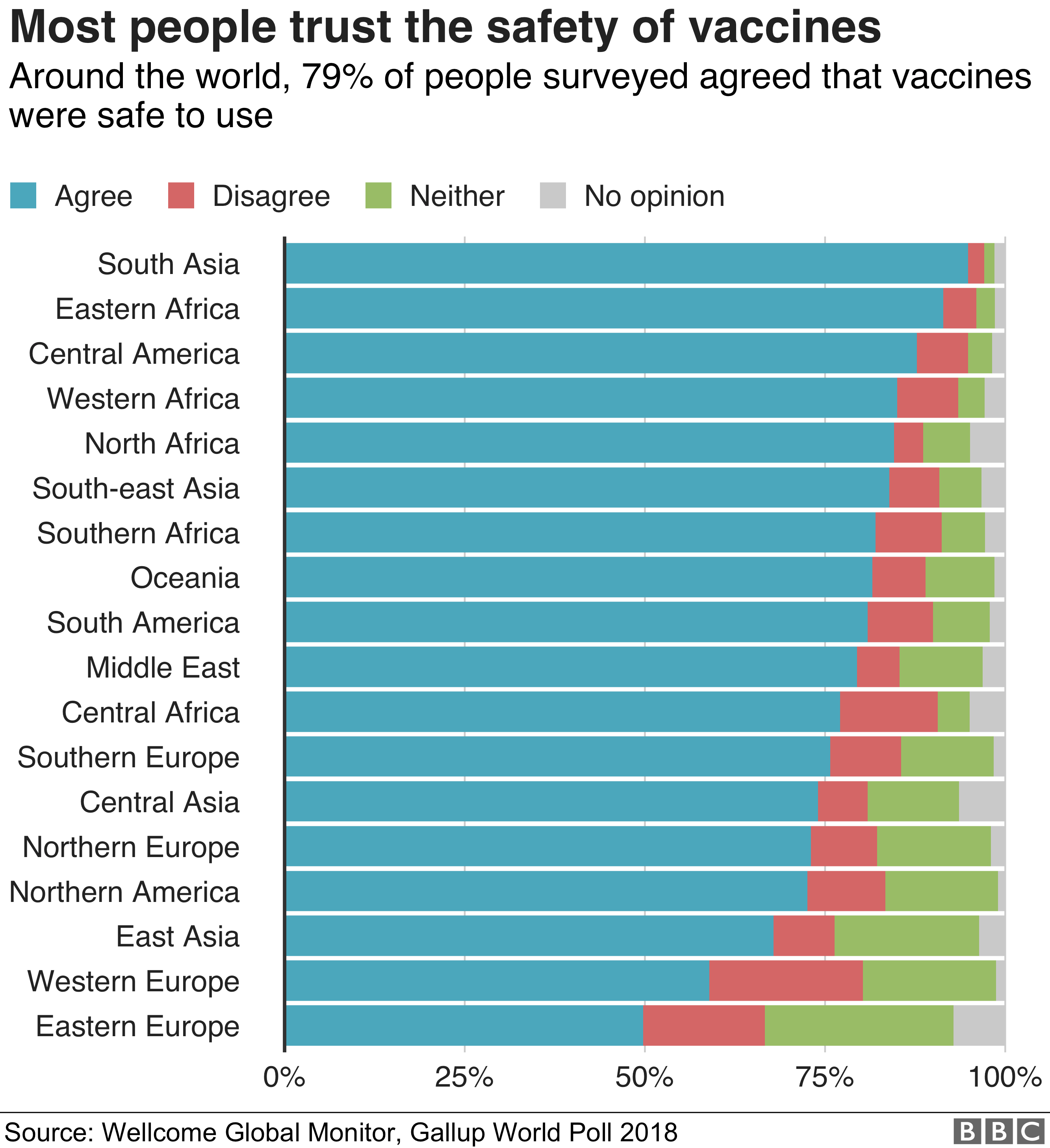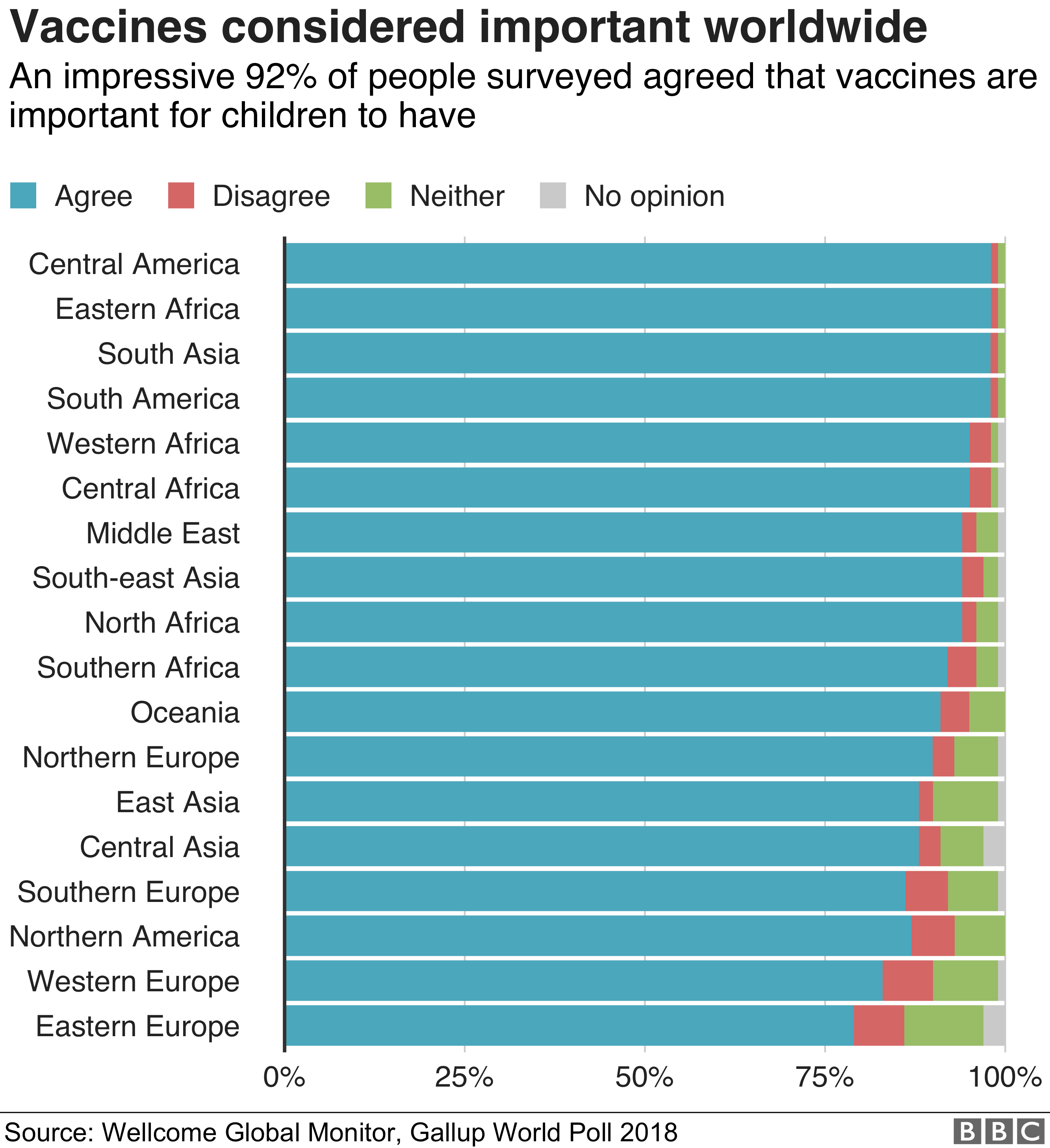Vaccines: Low trust in vaccination 'a global crisis'
- Published
It's a numbers game... if some people are not vaccinated, it can cause a big problem for us all
Public mistrust of vaccines means the world is taking a step backwards in the fight against deadly yet preventable infectious diseases, warn experts.
The biggest global study, external into attitudes on immunisation suggests confidence is low in some regions.
The Wellcome Trust analysis includes responses from more than 140,000 people in over 140 countries.
The World Health Organization lists vaccine hesitancy as one of the top 10 threats to global health.

If you can't see the interactive tool click or tap here, external.

The global survey reveals the number of people who say they have little confidence or trust in vaccination.
When asked if vaccines were safe:
79% "somewhat" or "strongly" agreed
7% somewhat or strongly disagreed
14% neither agreed nor disagreed
When asked if they believed vaccines worked:
84% agree either strongly or somewhat
5% either strongly or somewhat disagree
12% neither agreed nor disagreed
Why does it matter?
There is overwhelming scientific evidence that vaccination is the best defence against deadly and debilitating infections, such as measles.
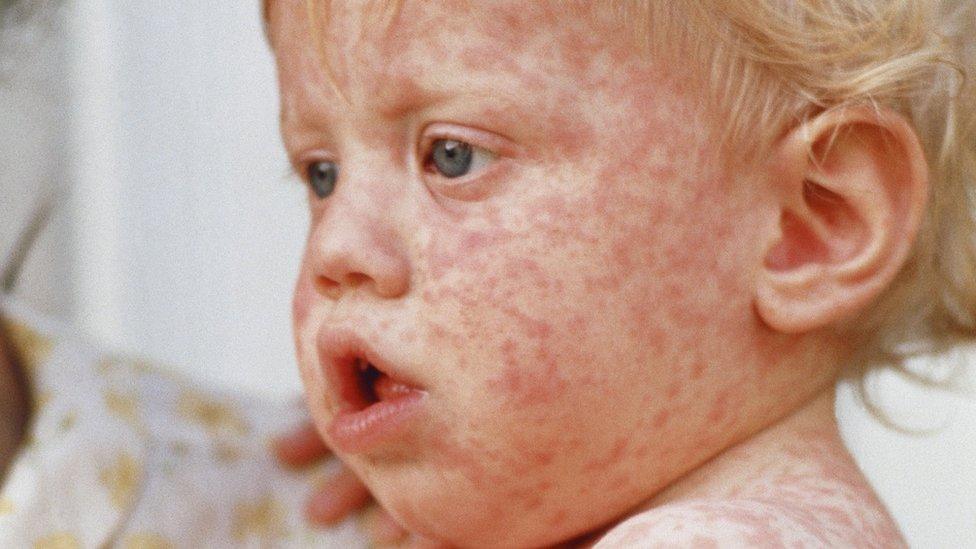
Measles can be deadly
Vaccines protect billions of people around the world. They have completely got rid of one disease - smallpox - and are bringing the world close to eliminating others, such as polio.
But some other diseases, such as measles, are making a resurgence and experts say people avoiding vaccines, fuelled by fear and misinformation, is one of the main causes.
Dr Ann Lindstrand, an expert in immunisation at the WHO, said the current situation was extremely serious.
"Vaccine hesitancy has the potential, at least in some places, to really hinder the very real progress the world has made in controlling vaccine-preventable diseases," she said.
"Any resurgence we see in these diseases are an unacceptable step backwards."
What about measles?
Countries that were close to eliminating measles have been seeing large outbreaks.
Data shows a rise in cases in almost every region of the world, with 30% more cases in 2017 than 2016.
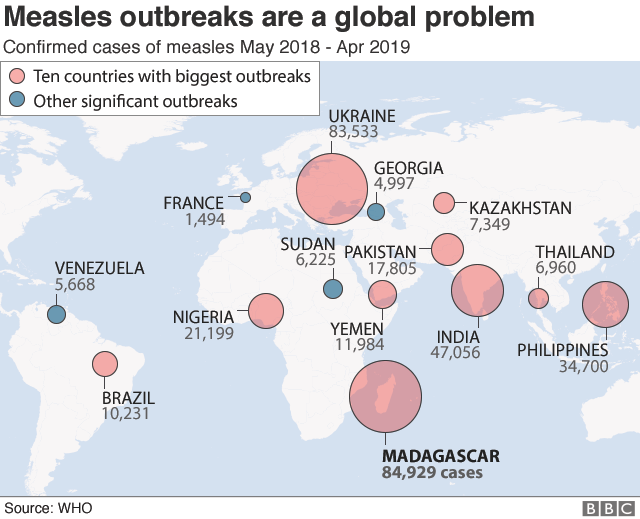
A decision not to vaccinate, for whatever reason, poses a risk to others as well as the individual from being infected themselves.
If enough people are vaccinated, it stops the disease from spreading through a population - something experts call "herd immunity".
Imran Khan, from the Wellcome Trust, said: "We are really concerned at the moment because for measles, anything less than 95% coverage can lead to outbreaks and that is what we are seeing."
Where was trust low?
Some people living in several higher-income regions were among the least certain about vaccine safety.
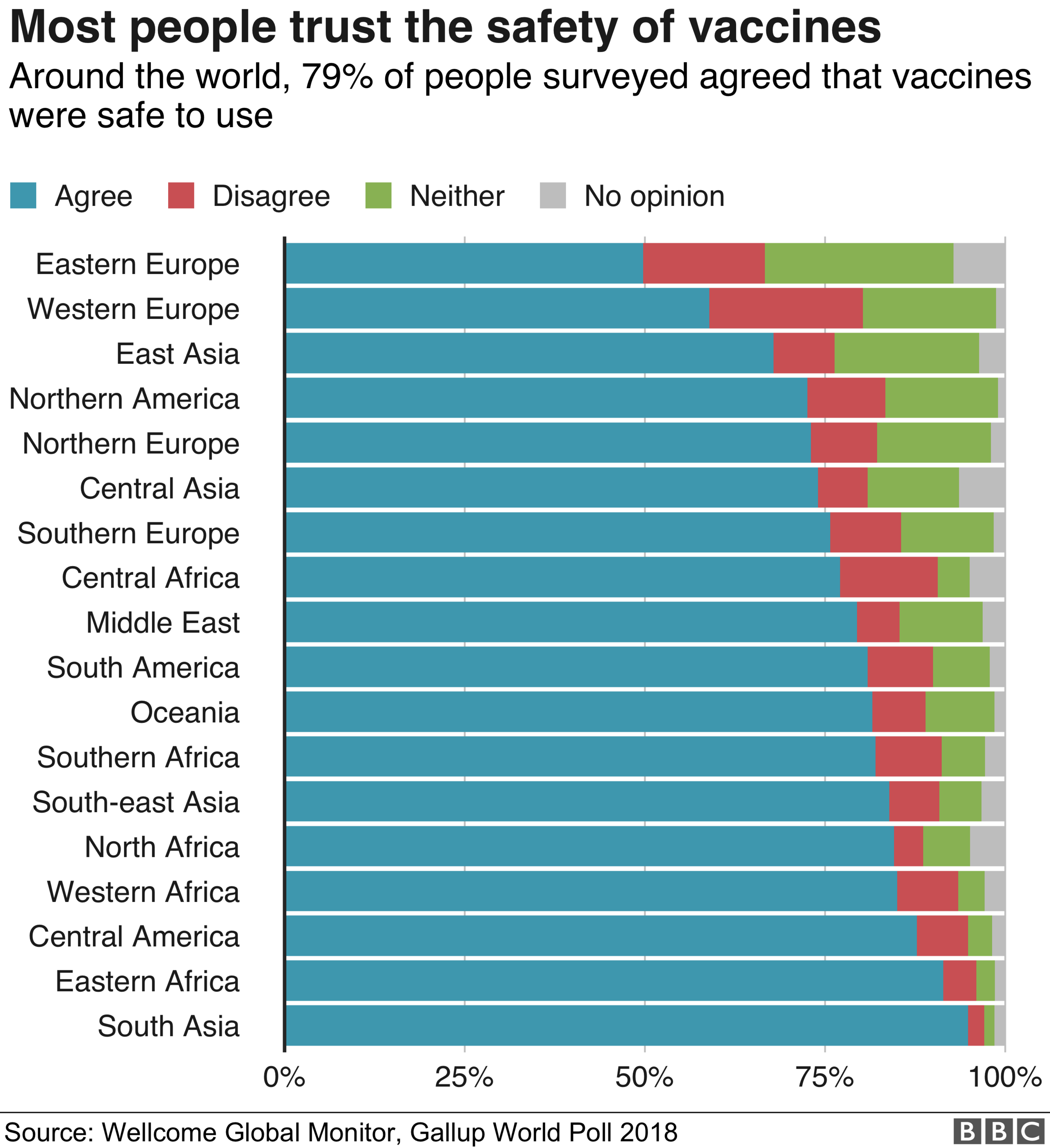
In France - a country among several European ones now experiencing outbreaks of measles - one in three disagreed that vaccines were safe, according to the survey. That was the highest percentage for any country worldwide.
People in France were also among the most likely to disagree that vaccines were effective, at 19%, and to disagree that vaccines were important for children to have, at 10%.
The French government has now added eight more compulsory vaccinations, external to the three children in the country already receive.
Neighbouring Italy - where 76% agreed vaccines were safe - recently passed a law that allows schools to ban unvaccinated children, or fine their parents, after immunisation rates dwindled.
The UK has yet to go this far but Health Secretary Matt Hancock has said he "won't rule out" the idea of introducing compulsory vaccinations if necessary.
The US has also been experiencing its own measles outbreak - the biggest to hit the country in decades, with more than 980 confirmed cases in 26 states in 2019 to date.
In Northern America, and Southern and Northern Europe, just over 70% of people agreed that vaccines were safe.
The figure was as low as 59% in Western Europe, and 50% in Eastern Europe.
In Ukraine, which reported the highest number of measles cases in Europe last year (53,218 in total) - only 50% of people agreed vaccines were effective. This figure was 46% in Belarus, 49% in Moldova, and 62% in Russia.
Where was trust high?
Most people in lower-income areas agreed vaccines were safe. The highest number was in South Asia, where 95% of people agreed, followed by Eastern Africa, where the figure was 92%.
Bangladesh and Rwanda had nearly universal agreement about the safety and effectiveness and have achieved very high immunisation rates despite many challenges in physically getting vaccines to people.
Rwanda became the world's first low-income country to provide young women universal access to the HPV vaccine that protects against cervical cancer.
Mr Khan said: "It shows what can be achieved with concerted effort to improve vaccine uptake."
One Filipino mother's worst fears were realised when her unvaccinated children caught measles
What makes people sceptical?
In the survey, people with more trust in scientists, doctors and nurses tended to be more likely to agree that vaccines were safe. Conversely, those who had sought information about science, medicine or health recently appeared to be less likely to agree.
The Wellcome report does not explore all of the reasons behind low confidence but researchers say there are likely to be many factors involved.
Some of it may be complacency - if a disease has become less common, then the need to get immunised may feel less pressing when weighing the benefits against any possible risk.
All medicines, vaccines included, can have side-effects. But vaccines are thoroughly tested to check they are safe and effective.
The internet means beliefs and concerns about vaccines can be shared in an instant, spreading information that isn't necessarily based on fact.
In Japan, concerns about the HPV vaccine and a reported link with neurological problems were widely publicised, which experts think knocked confidence in immunisation in general.
Similarly, in France, there was controversy about a pandemic influenza vaccine - accusations that the government bought high quantities of the vaccine, external and unsubstantiated claims that it had been made too quickly and couldn't be safe.
In the UK, there has been misinformation circulating about the MMR jab and autism.
Dr Lindstrand said: "One of the most important interventions to counteract doubts and worries about vaccines is to have health workers really well trained and able and ready to recommend vaccinations based on scientific truth and to be able to respond correctly to questions and concerns that parents have and communities have."
Interactive tool produced by Becky Dale and Christine Jeavans; design by Debie Loizou; development by Scott Jarvis and Katia Artsenkova
